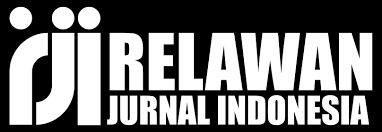PERAN DAN MEKANISME PASAR DALAM EKONOMI ISLAM
DOI:
https://doi.org/10.61722/jiem.v3i11.6979Keywords:
Islamic Economics, Market Mechanism, Hisbah Institution, Social Justice, Sharia PrinciplesAbstract
The market plays a crucial role in the Islamic economic system, not merely as a meeting place for sellers and buyers, but also as an instrument for realizing justice, balance, and social welfare. This study aims to analyze the role and market mechanisms from an Islamic economic perspective, focusing on its underlying principles and solutions to its imperfections. The research employs a qualitative methodology through a literature review of various sources, such as academic publications and scholarly works in Islamic economics. The findings indicate that the market during the time of the Prophet Muhammad (PBUH) operated freely yet ethically, supervised by the Hisbah institution to prevent monopolistic practices, fraud, and injustice. Principles such as the prohibition of riba, gharar, and ihtikar form the foundation for maintaining market balance. In the modern era, although market forms have evolved into supermarkets, malls, and e-commerce, the application of Islamic values remains relevant to ensure that economic activities are not solely profit-oriented but also consider blessings and social responsibility. In conclusion, the market in Islamic economics functions as a driver of fair distribution and a means to achieve collective welfare, with Islamic sharia as its primary guide.
References
Antonio, M. S. (2001). Bank Syariah: dari teori ke praktik. Gema Insani. Jakarta: Gema Insani.
Rahmi, A. (2015). Mekanisme pasar dalam islam. Jurnal Ekonomi Bisnis dan Kewirausahaan, 4(2), 177-192.
Tjiptono, F. (1995). Strategi pemasaran.
Mannan, M. A. (1992). Teori dan Praktek Ekonomi Islam. Yogyakarta: Dana Bhakti Wakaf.
OCBC.Id. (2023, February 20). Keseimbangan Pasar: Pengertian, Proses Terbentuknya, dan Contoh. Retrieved from https://www.ocbc.id/article/2023/02/20/keseimbangan-pasar
Downloads
Published
Issue
Section
License
Copyright (c) 2025 JURNAL ILMIAH EKONOMI DAN MANAJEMEN

This work is licensed under a Creative Commons Attribution-ShareAlike 4.0 International License.












